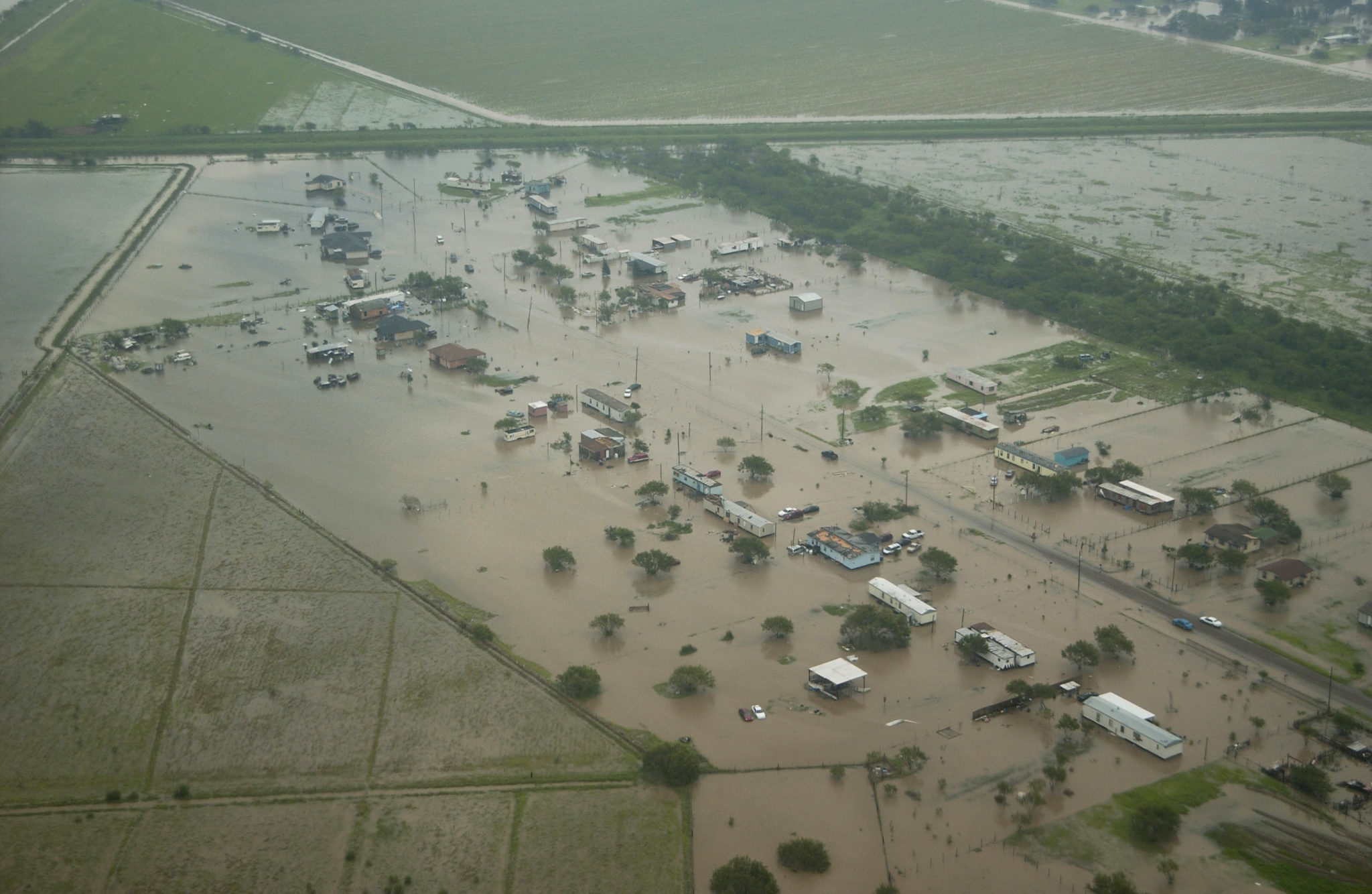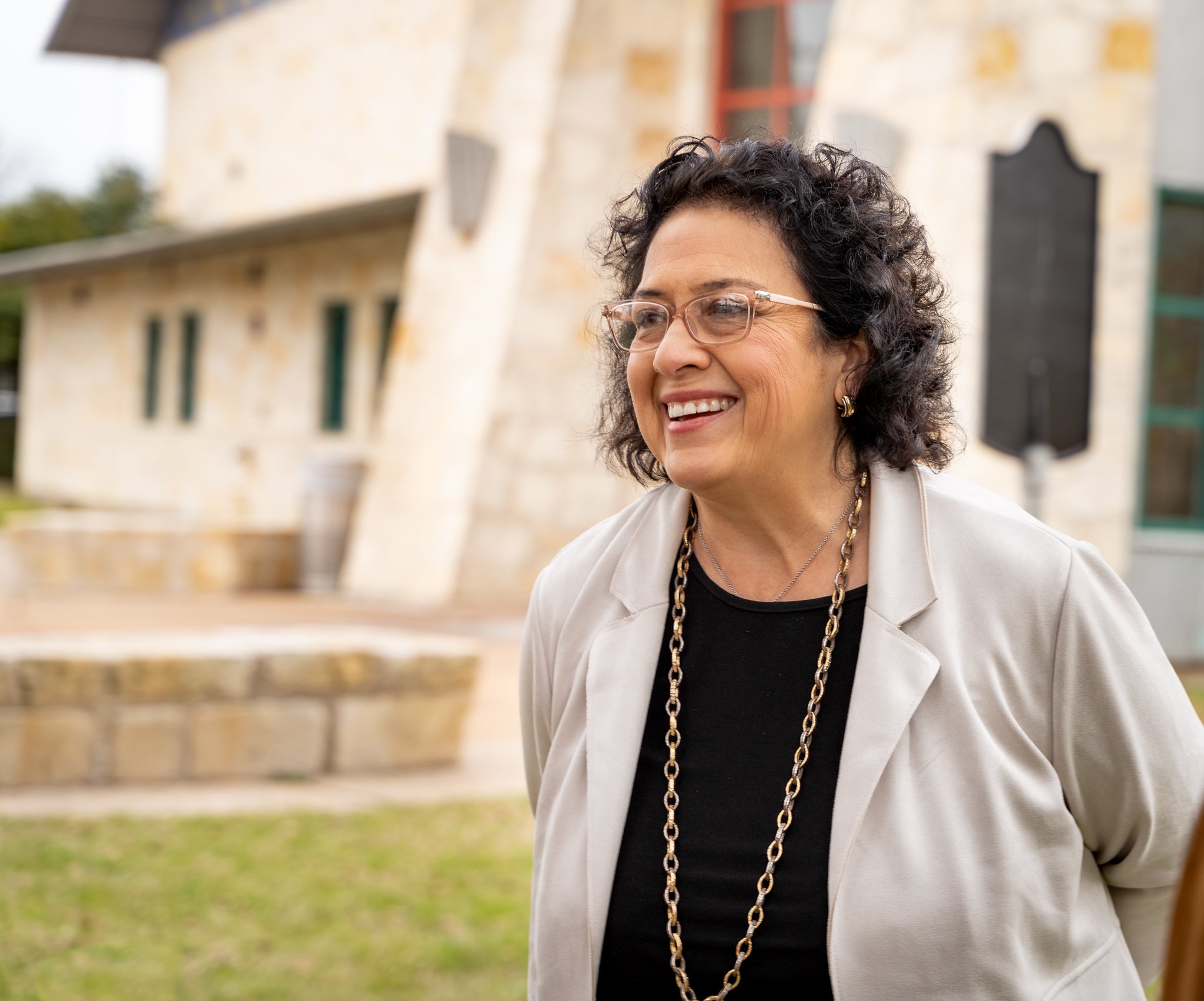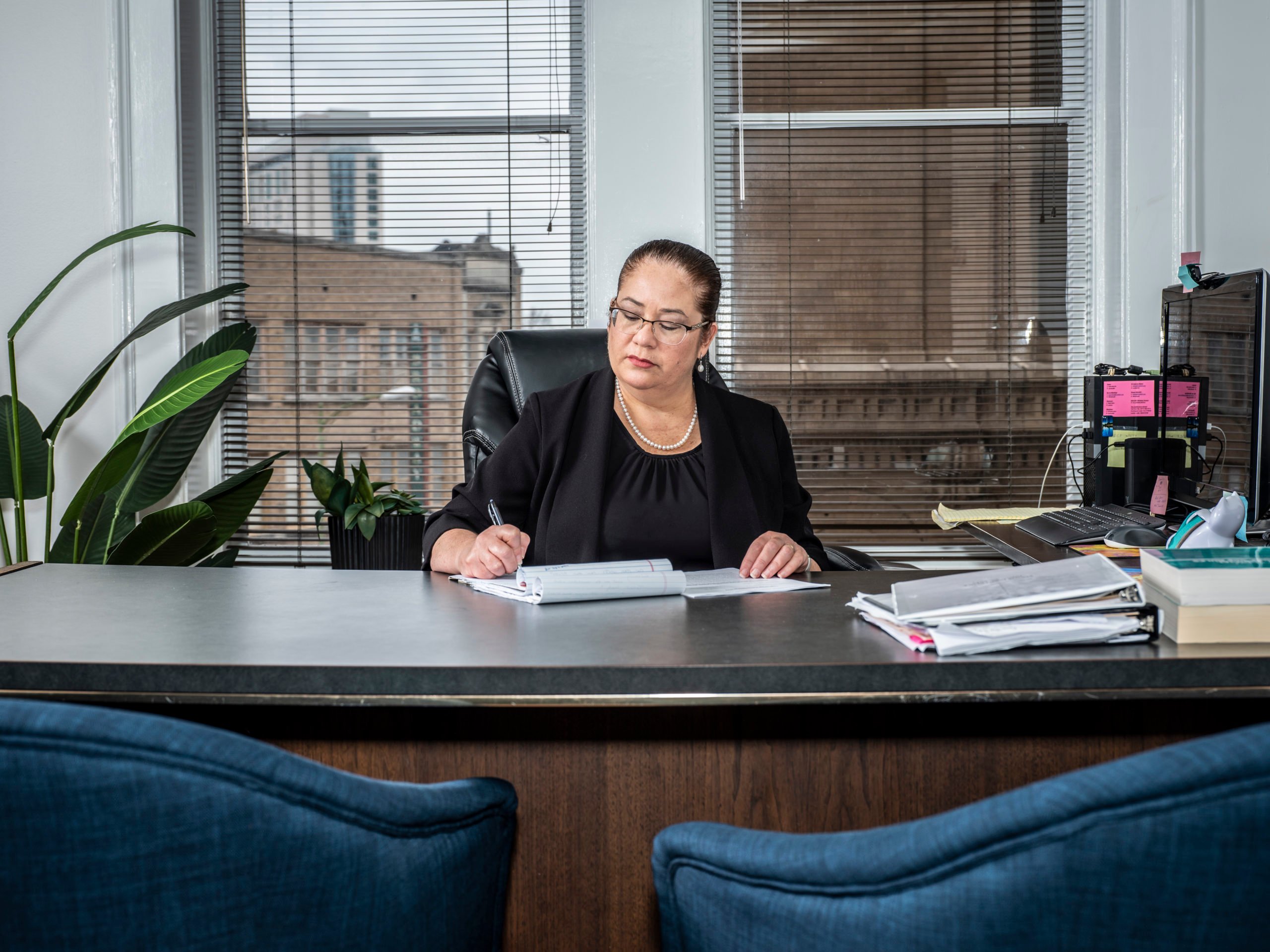
Lawsuit: City of Port Isabel Blocked Public Housing for Latinos Displaced by Hurricane Dolly
After the 2008 hurricane, city officials refused to issue permits so that public housing could be rebuilt in an affluent neighborhood, the complaint says.


City leaders in Port Isabel “repeatedly thwarted” efforts to rebuild public housing overwhelmingly used by Latinos after Hurricane Dolly hit the Rio Grande Valley in 2008, according to a federal lawsuit filed Monday by the Cameron County Housing Authority. Fair housing advocates say the allegedly discriminatory acts in the Valley hold a cautionary tale as Houston recovers from Hurricane Harvey.
When Dolly struck Port Isabel — a beach town of 5,000 people 23 miles northeast of Brownsville — it destroyed the Neptune Apartments, a public housing development where the majority of tenants were Hispanic. The county’s housing authority won federal disaster recovery funds to rebuild in 2014, but its plans were blocked after the other residents of the neighborhood said they didn’t want “those people” to come back, the complaint says. In community engagement meetings held in 2015, white residents reportedly said that allowing the multifamily housing development to be rebuilt would usher “drugs and crime” into the neighborhood, along with other problems.
The city of Port Isabel blocked rebuilding efforts by refusing to make zoning changes and issue permits needed for the project, the complaint states. In 2015, the federal funds were lost.
“The defendants’ wrongful actions caused the Cameron County Housing Authority to lose out on millions of dollars in federal grant funding,” said Ben Riemer of Bell Nunnally & Martin LLP, lead attorney for the plaintiffs. “The inability to rebuild this housing had a disproportionate impact on Port Isabel’s Latino community.”
The housing authority seeks relief under Title VI of the Civil Rights Act, the Fair Housing Act of 1968 and the U.S. Constitution’s 14th Amendment. Texas Appleseed, a nonprofit social justice group, is assisting the plaintiffs. Deborah Fowler, the group’s executive director, said in a statement that she hopes the litigation will serve as a “wake-up call” to local officials overseeing public housing rebuilding efforts in Hurricane Harvey’s wake.
On Monday, Port Isabel City Manager Jared Hockema told the Observer the city has not yet been served. He denied the allegations made by the housing authority but would not comment further.
Some of the public housing in Harvey’s path will need to be rebuilt, especially in Houston’s Fifth Ward, where waist-deep water infiltrated apartments and displaced hundreds of low-income families. Public housing leaders there have already drawn criticism for evicting 180 elderly residents of a water-damaged apartment building along Buffalo Bayou.
The stall tactics reportedly used by Port Isabel authorities after Dolly also played out in Galveston following Hurricane Ike. Residents’ complaints managed to stall the construction of new public housing for seven years after Ike destroyed 569 public housing units. There, one outspoken critic said rebuilding public housing for mixed-income residents would cause the encroachment of “concentrated poverty.”
In Port Isabel, residents of the well-to-do, mostly white neighborhood where the new housing development was proposed seemed less concerned about poverty than they were about crime and loud parties. In community meetings, residents reportedly fixated on stereotypes about Latinos, such as their having large families and throwing loud parties. Attendees also fretted that the families who lived in the proposed development would let their children roam outdoors too often, “indicating a bias against families with children,” the complaint says.
The tenants of the Cameron County Housing Authority are 99 percent Latino and 74 percent families with children.


